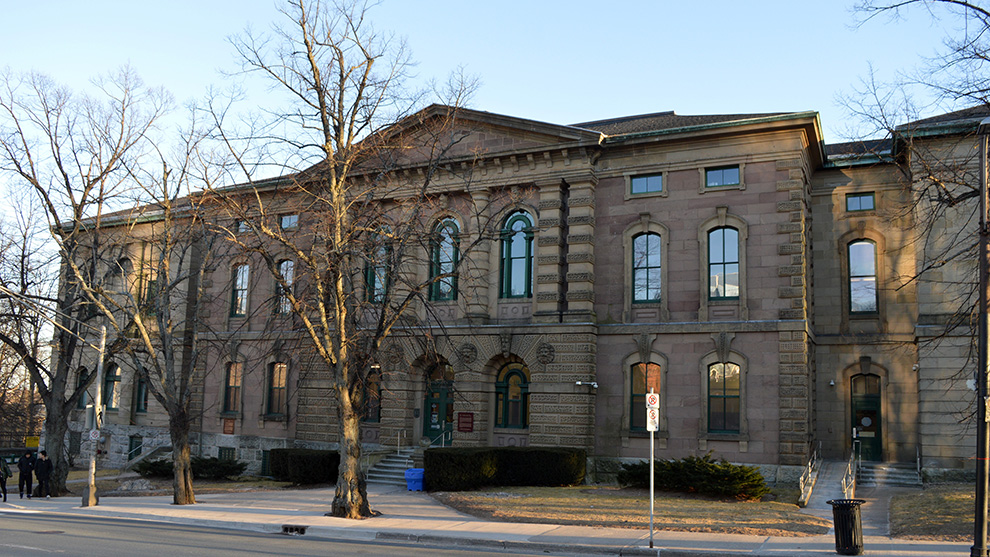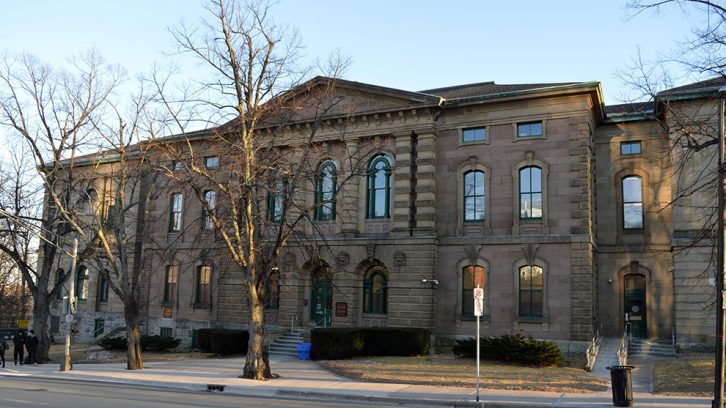Domestic Abuse
Domestic violence court set to open in Halifax
Offenders to take part in educational and therapeutic programs prior to sentencing

caption
The new domestic violence court with take place at the Halifax provincial courthouse.
caption
The new domestic violence court with take place at the Halifax provincial courthouse.The Nova Scotia Domestic Violence Court Program will be expanding into Halifax this March, following months of work with local partners.
Claudia Mann, a director with court services, says the court is currently working to determine which cases will appear before it.
“The chance of reducing future violence and ending intimate partner violence is better the earlier you can intervene,” she says.
In Nova Scotia, the number of victims of police-reported intimate partner violence increased eight per cent from 2015 to 2016. The number rose from 2,327 victims in 2015 to 2,462 victims in 2016, according to a 2017 report from the Nova Scotia Advisory Council on the Status of Women.
The most common criminal offence experienced by both female and male victims is assault. Uttering threats is the second most common offence.
In Nova Scotia, female victims are six times more likely to be killed by a partner than male victims. Between 1997 and 2016, there were 40 female victims of domestic homicides in the province.
The domestic violence court expansion, which follows a 2016 evaluation of a pilot program in Sydney, will operate out of the Halifax provincial courthouse.
Mann says that, while the Halifax court will have the same “baseline” as the Sydney court, they are “trying to move the interventions that are available to people up far earlier in the process.”
As part of the court process, domestic violence offenders will take an educational or therapeutic program before sentencing.
The particular program will be determined by an assessment early in the court process. The court will try to “tailor a plan for the individuals in front of us, rather than having one approach for all the individuals that come through (the program),” says Mann.
In Sydney, these programs range from five to 25 weeks, depending on which program is deemed appropriate for the offender.
To be eligible for the program, the offender must first plead guilty and take responsibility for the offence.
“This is not a trial court,” says Mann.
As the new court program requires a guilty plea to be eligible, the accused will have access to legal representation from Nova Scotia Legal Aid.
A working group of more than 35 community partners, including Legal Aid and a variety of other local organizations and academics, have been meeting on a weekly basis to discuss the court since July.
Women’s Centres Connect, which provides support, counselling and crisis intervention to women in need across the province, is one of the organizations involved.
Georgia Barnwell, the co-ordinator for Women’s Centres Connect, hopes the program will have a positive impact on the lives of victims.
“(Victims) are not served by the present court system,” says Barnwell. “One of our main concerns is that they won’t be re-victimized by the new approach.”
Barnwell says the working group is diverse and has a strong understanding of how things need to work, which she hopes will help the program’s success rate.
The safety of the victim remains the number one priority, says Barnwell.
There will be three one-hour info sessions regarding the new court program on Feb. 21 at the courthouse on Spring Garden Road.

